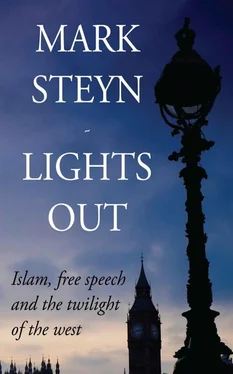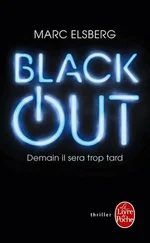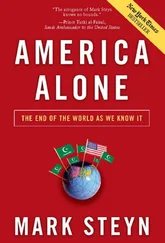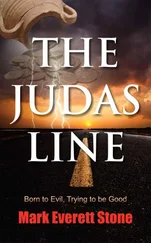Alarmingly Pro-Active
And here’s how they begin:
‘Looking forward’ was an explicit theme of Wednesday’s press release from the Ontario Human Rights Commission (OHRC), which, without a hearing, attributed Islamophobic racism to Maclean’s magazine and the writer Mark Steyn.
The commission is looking ahead to a pro-active new role… The broad, if not vague, criterion of the public interest will be the basis for the commissioners’ own initiating of inquiries into such practices, whatever they may be.
In turn, the commission’s appointees can enter any premises (except a dwelling), without a search warrant, and demand any relevant ‘document or thing’, and remove such things, not quite for indefinite periods, but for ‘a reasonable time’. Hindering all this is forbidden…
The closing, ‘looking-forward’ paragraph of Wednesday’s press release evokes the OHRC’s ‘broader role in addressing the tension and conflict that such writings [as the Maclean’s article in question] cause in the community’.
Or to put it in a nutshell, as the editorial concludes:
Be afraid.
This was the Globe’s second editorial on the subject. Yesterday the editors wrote:
When is a decision not a decision? The Ontario Human Rights Commission (OHRC) performed just such a deft manoeuvre on Wednesday, announcing there would be no hearing on whether Maclean’s magazine and Mark Steyn had violated human rights. Nonetheless, the commission concluded in a press release that they were both guilty of racism…
One of the most basic maxims of justice is Audi alteram partem: Listen to the other side. By pronouncing Maclean’s and Mr Steyn to be racist, the commission has violated that fundamental principle.
Well, so much for the writers and editors. But what do the readers, that great mass of moderate centrist reasonable Canadian opinion, think about all this? Under the headline “Commissioners, Not Commissars”, James Marvin of Toronto writes:
A case could be made that, instead of berating Mark Steyn and Maclean’s, the Ontario Human Rights Commission should have been defending them (Unproven Racism – editorial, April 11). We don’t want a situation where commissioners act like commissars and hate laws become gag laws.
So that’s what a casual Globe & Mail reader will see on a quick scan of the paper this weekend: “ Vive le Canada libre! ”; “Alarmingly Pro-Active”; and “Commissioners, Not Commissars”. I wonder if even Commissar Hall is so secure in her cocoon of cowardly bureaucratic thuggery that she doesn’t realize she and the grotesque system so embodies so perfectly have fewer friends by the week.
WEIMAR CANADA
More hate, please
Maclean’s, May 5th 2008
LAST WEEK’S letters page included a missive from Jennifer Lynch, QC, Chief Commissioner of the Canadian “Human Rights” Commission, defending her employees from the accusation of “improper investigative techniques” by yours truly. Steyn, she writes, “provides no substantiation for these claims”, and then concludes:
Why is this all important? Because words are important. Steyn would have us believe that words, however hateful, should be given free rein. History has shown us that hateful words sometimes lead to hurtful actions that undermine freedom and have led to unspeakable crimes. That is why Canada and most other democracies have enacted legislation to place reasonable limits on the expression of hatred.
Hmm. “History has shown us that hateful words sometimes lead to hurtful actions that undermine freedom and have led to unspeakable crimes.” Commissar Lynch provides, as she would say, “no substantiation for these claims”. But then she’s a “hate speech” prosecutor and, as we know, Canada’s “human rights” procedures aren’t subject to tiresome requirements like evidence. So she’s made an argument from authority: The great Queen’s Counsel has risen from her throne in the Star Chamber and pronounced, and let that suffice. Those of us who occupy less exalted positions in the realm might wish to ponder the evidence for her assertions.
It’s true that “hurtful actions that undermine freedom” and lead to “unspeakable crimes” usually have some figleaf of intellectual justification. For example, the ideology first articulated by Karl Marx has led to the deaths of millions of people around the planet on an unprecedented scale. Yet oddly enough, no matter how many folks are murdered in the name of Marxism-Leninism, you’re still free to propound its principles at every college in Canada.
Ah, but that’s the Good Totalitarianism. What about the Bad Totalitarianism? You know, the one everybody disapproves of: Nazism. Isn’t it obvious that in the case of Adolf Hitler “hateful words” led to “unspeakable crimes”? This argument is offered routinely: If only there’d been “reasonable limits on the expression of hatred” seventy years ago, the Holocaust might have been prevented.
There’s just one teensy-weensy problem with it: Pre-Nazi Germany had such “reasonable limits”. Indeed, the Weimar Republic was a veritable proto-Trudeaupia. As Alan Borovoy, Canada’s leading civil libertarian, put it:
Remarkably, pre-Hitler Germany had laws very much like the Canadian anti-hate law. Moreover, those laws were enforced with some vigour. During the fifteen years before Hitler came to power, there were more than two hundred prosecutions based on anti-semitic speech. And, in the opinion of the leading Jewish organization of that era, no more than 10 per cent of the cases were mishandled by the authorities. As subsequent history so painfully testifies, this type of legislation proved ineffectual on the one occasion when there was a real argument for it.
Inevitably, the Nazi Party exploited the restrictions on “free speech” in order to boost its appeal. In 1925, the State of Bavaria issued an order banning Adolf Hitler from making any public speeches. The Nazis responded by distributing a drawing of their leader with his mouth gagged and the caption, “Of 2,000 million people in the world, one alone is forbidden to speak in Germany.”
The idea that “hate speech” led to the Holocaust is seductive because it’s easy: If only we ban hateful speech, then there will be no hateful acts. But, as Professor Anuj C Desai of the University of Wisconsin Law School points out, “Biased speech has been around since history began. As a logical matter, then, it is no more helpful to say that anti-Semitic speech caused the Holocaust than to say organized government caused it, or, for that matter, to say that oxygen caused it. All were necessary ingredients, but all have been present in every historical epoch in every country in the world.”
Just so. Indeed, the principal ingredient unique to the pre-Hitler era was the introduction of Jennifer Lynch-type hate-speech laws that supposedly protect vulnerable minorities from “unspeakable acts”. You might as well argue that Weimar’s “reasonable limits” on free speech led to the Holocaust: after all, while anti-Semitism is “the oldest hatred”, it didn’t turn genocidal until the “reasonable limits” proponents of the day introduced group-defamation laws to Germany. ’Tween-wars Europe was awash in prototype hate-crimes legislation. For example, the Versailles Conference required the new post-war states to sign on to the 1919 Minorities Protection Treaty, with its solemn guarantees of non-discrimination. I’m sure Canada’s many Jews of Mitteleuropean origin will be happy to testify to what a splendid job that far-sighted legislation did.
The problem the Jews found themselves up against in Germany and elsewhere was not the lack of hate-speech laws but the lack of protection of the common or garden laws – against vandalism and property appropriation and suchlike. One notes, by the way, that property rights are absent from Canada’s modish Charter of Rights. The reductio ad Hitlerum is the laziest form of argument, so it’s no surprise to find the defenders of the “human rights” regime taking refuge in it. But it stands history on its head. Most of us have a vague understanding that Hitler used the burning of the Reichstag in February 1933 as a pretext to “seize” dictatorial powers. But, in fact, he didn’t “seize” anything because he didn’t need to. He merely invoked Article 48 of the Weimar Republic’s constitution, allowing the state, in the interests of the greater good, to set – what’s the phrase? – “reasonable limits” on freedom of the press, freedom of expression, freedom of association, freedom from unlawful search and seizure and surveillance of postal and electronic communications. The Nazis didn’t invent a dictatorship out of whole cloth. They merely took advantage of the illiberal provisions of a supposedly liberal constitution.
Читать дальше












